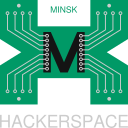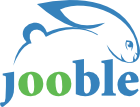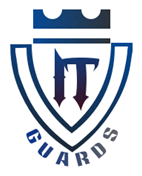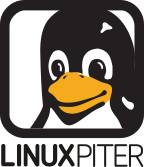GSoC from mentor's point of view
LVEE Winter 2018
About GSoC
Google Summer of Code (GSoC)1 provides opportunity for students to work during summer on free software development instead of part-time jobs.
Main program goals are:
- bring new people to the FLOSS2 community;
- facilitate free software projects development;
- give students real-life practice in development and community interactions.
Student’s Application
Starting from February 12 organizations will be announced, contact them early since proper communication and application preparation takes considerable time.
Application is the most important element during students selection. It should not be taken lightly. It must contain:
- rationale about why, what and how you are going to solve your task;
- detailed per-week plan of your job;
- contacts, availability hours, any scheduled absence (e.g. exams).
Sometimes one plan item per two weeks is allowed, but more detailed and reasonable plan will sufficiently increase application’s value. However, keep the plan realistic: usually development takes more time than expected and failure to follow the plan will likely result in evaluation failure.
An application must be written by student only, it is your job to plan proper schedule. Mentors are forbidden to write applications for their students. Of course it is hard to write a good application in a single attempt, so the process may be iterative: during 2 weeks for application submission you may send drafts for your mentor for review.
Students need to proof their skills and abilities. Exact implementation is up to organization, but typically students are asked to fix some simple bugs and/or to make successful pull request. The main goal of such tasks is to verify that student have minimal skills required for successful project completion. Failure to at least fix some bug will likely lead to application rejection.
Another crucial aspect is student’s communication. GSoC assumes remote work, so failure to communicate with mentors or community in time usually indicates serious communication problems and such students will be likely rejected. You are usually expected to answer within 24 hours.
Each organization provides a list of ideas for students projects. Feel free to contact mentors for further details early. You may propose your own idea for the project. This may be harder since you’ll need to find someone ready to mentor your own project, but self proposals usually indicate high profile students and give higher chances of success.
Please consider GSoC as a full time summer job, most projects will require 35-40 hours per week. Do not try to mix this with another summer job, results are usually bad. If you have exams and other scheduled absences, this can be arranged.
You may submit up to 3 applications, but keep in mind that each good application will take about a week of work. If you’re submitting more than one application, please indicate your priorities. There were known cases when student was eligible to both organizations, but was eventually rejected, because organizations don’t want to take risks with losing project slot.
Please verify and submit in time all required documents. You must be officially recognized as a student by April 23rd3, when results are announced. Failure to provide required documents will result in rejection.
Google is very serious about deadlines. Participants are given enough time for each step, but failure to submit before deadline will result in 100% failure. Your ISP may have problems, or browser may crash, or web application form may have bugs. It does not matter, backdating is absolutely not possible even if your mentor will vouch for you. So submit everything well before the deadline.
Before the results will be officially announced by Google don’t even try to ask your mentors if you are accepted. Exact information is known only to Google. While mentors may know unapproved internal slot distribution, they are strictly forbidden to disclosure this information, as it will result in organization disqualification.
Workflow and Evaluations
Start getting acquainted with your project early. By the time coding will officially start (May 14th3) you must start coding immediately. Excuses like “I need some time to learn how it works” will not be taken lightly. You will have time to get used with project and infrastructure after April 23rd and nobody denies you to do this earlier :) So when coding will officially start, be ready to do it right from the start. Most organizations expect daily commits during business days.
Keep in close touch with your mentors. Report any problems, difficulties, misunderstandings immediately. Communication failure often results into project failure. Mentoring is a hard job, it often requires 8-10 hours per week and mentors are working mostly as volunteers, keep this in mind. Be in touch with community, communicate openly about your progress.
If you can’t follow schedule due to unexpected problems and have well-grounded development difficulty, contact your mentors and your schedule may be tuned within reasonable limits. But this doesn’t mean you can slack off, daily progress will be mandatory. Evaluations must be submitted properly and in time, failure to do so will result in project termination.
If student is not available or do not show progress for a long time (two weeks and more), they will be failed from the program even for respectful reasons like getting to hospital. But student failure is not a black mark and failed students may participate again next year, but no more than two accepted participations are allowed per student regardless of their history.
For a project to succeed the final evaluation some organizations will require student’s code to be accepted upstream, though this is not Google’s demand and is up to organizations.
Please stay with community after GSoC to support and enhance your achievements. This is what GSoC is about.
1 https://summerofcode.withgoogle.com/
2 Free/Libre Open Source Software
3 https://developers.google.com/open-source/gsoc/timeline
Abstract licensed under Creative Commons Attribution-ShareAlike 3.0 license
Назад



































